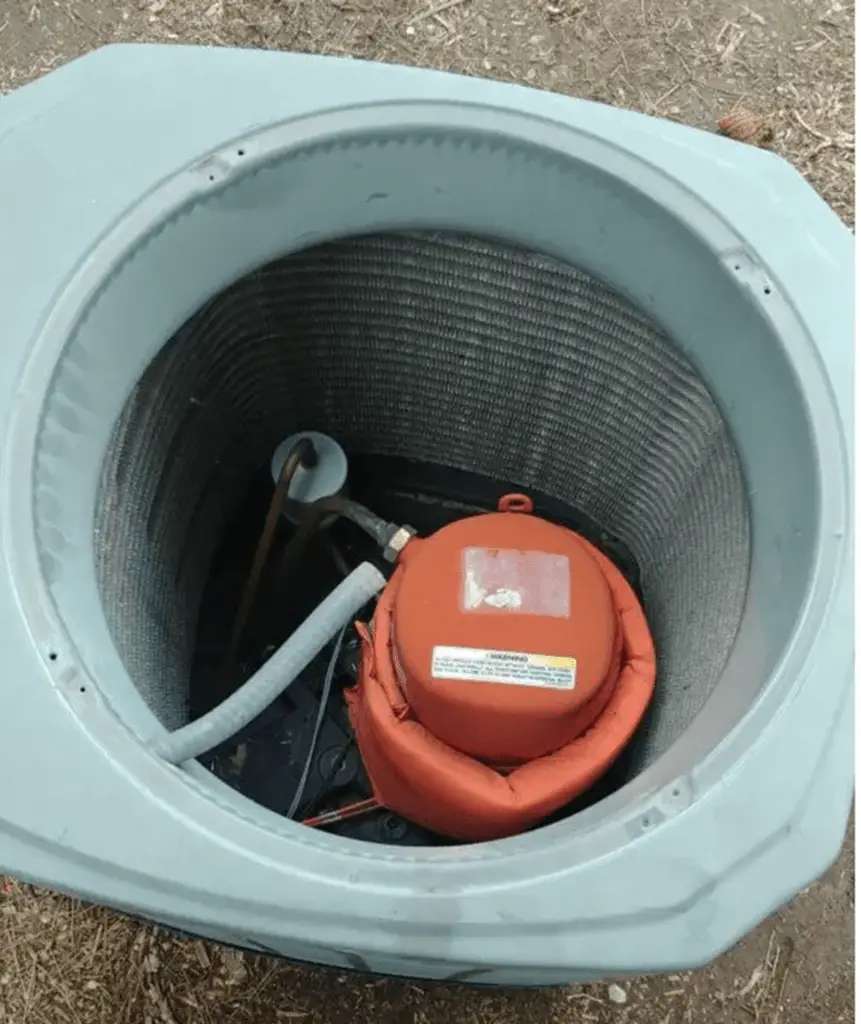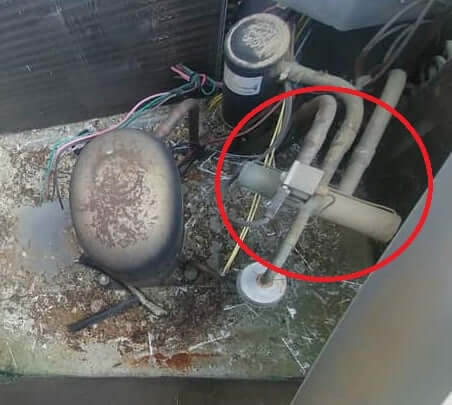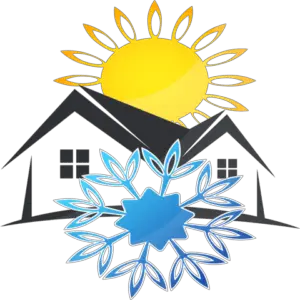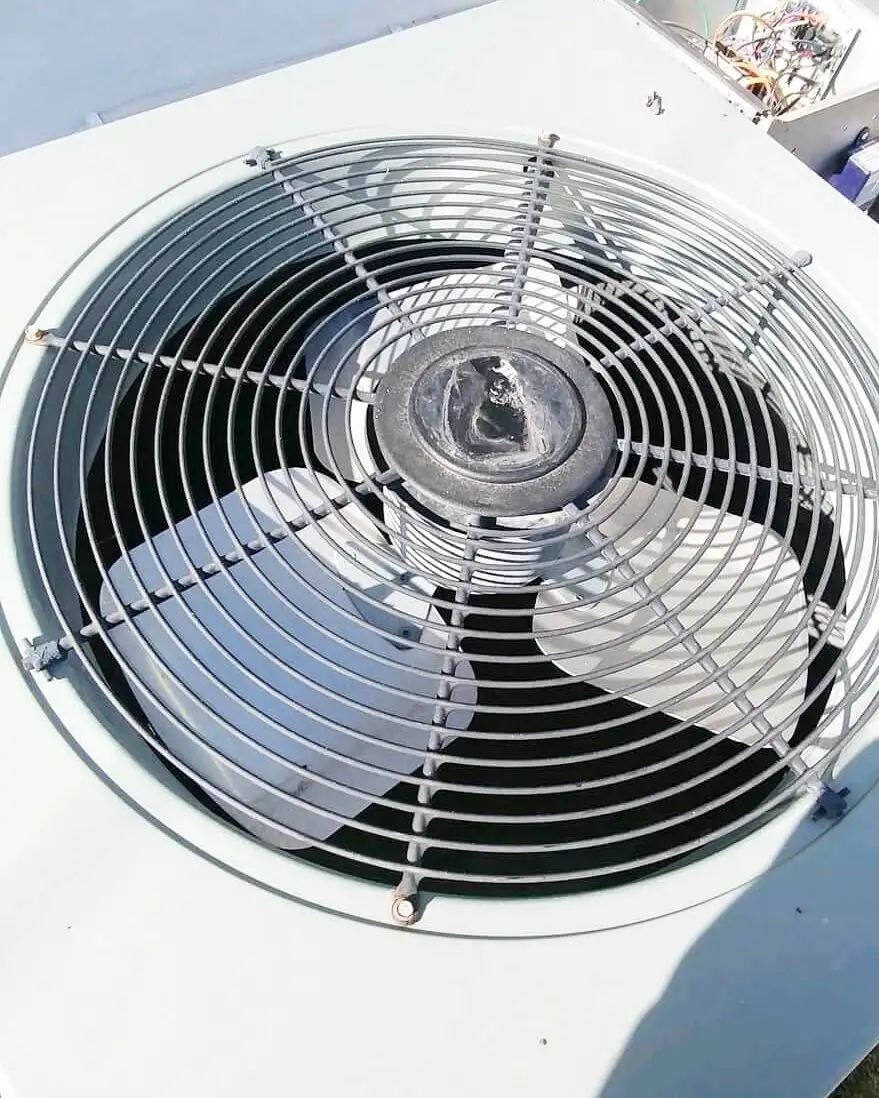There are really only about six parts in a heat pump that can contribute to making noise. Review the list below and we can eliminate them one at a time. Each of these has an individual noise characteristic.
- Compressor
- Compressor Contactor
- Reversing Valve
- Reversing Valve Solenoid Coil Buzzing
- Fan Motor
- Fan Blade
Keep in mind that the average life of a heat pump is from 12 to 15 years. If your heat pump is older than that you would be best served by getting a deep service done and making sure your equipment is performing to it’s peak.
Otherwise consider replacing the system before chasing dollars down a rabbit hole trying to make it quieter. Older heat pumps are inherently noisy.
So much has been done over the last several years to improve efficiency and reduce noise because heat pump noise has been an ongoing complaint for many years.
There has actually been moratoriums on heat pump in some communities because of noise. Some home owners have even considered state lemon laws.
But since you are still reading your reluctance to change has surfaced and let’s get on with diagnosing your problem of noise.
Why Does My Heat Pump Make A Loud Noise When It Shuts Off?
Heat Pump noise complaints are very common. As a fan motor in an outdoor unit ages the bearing wear and the motors will sometimes stop with a clunking noise. Also when a compressor stops running the pressures in the system begin to equalize which adds to the noise.
Next to fan noise the compressor in the next noisiest thing. The compressor is sometimes hard to hear over the fan noise because the fan is so close and over the top of the compressor in most cases.
Manufacturer’s of heat pumps use mainly two makes of compressors in there systems. Copeland and Tecumseh sort of lead the pack. A few brands like Carrier, Lennox and Trane have made their own compressors. Some of these major manufacturers that have made their own compressors in the past have now begun to outsource their compressors .
It has been said that the best day in the life of an heat pump is the day it was installed. So much regarding the future life of your heat pump is related to that day and the best practices of the installer. Did he use proper techniques in his welding and evacuation?
Improper techniques can lead to early demise, failure or just noise of your compressor.
If you determine the compressor to be overly noisy then have it checked for proper compression ratio and refrigerant charge. Adding a heat pump compressor noise blanket (#ad) could quiet the compressor down a few decibels.

If it is determined that your compressor is the source of noise, seriously consider replacing the system especially if the compressor is out of warranty.
My AC Condenser Is Buzzing
Buzzing sounds can come from several areas of a heat pump.
- Contactor
- Reversing Valves Solenoid
- Compressor
- Fan Motor
- Loose Shrouds or Framing
You can easily test the contactor for noise by turning the breaker to the outdoor unit off. Turn on the heat pump from the thermostat. It will pull in the contactor with nothing else running because the contactor is powered from the furnace or indoor air handler.
Without the fan or the compressor running it’s east to identify the contactor as the culprit. If it is noisy it’s probably related to the constant opening and closing of the switch. That’s just one of the reasons for contactor failure. It has just made it weak and loose which let’s the electromagnet vibrate against the back plate of the contacts to hold them closed.
Or, it could have some debris or a bug inside. I’ve had some contactors that would not close and start the unit because they had a bug or a frog stuck in the contacts. The contacts which make up the actual switch that starts and stops the flow of electricity to the compressor and the fan motor over time become burnt and pitted.
Originally the contacts have a small amount of silver to aid in making a good connection and that has been worn and burnt off by the repeated on and off arcing of the switch. Replacing the compressor contactor is a simple and quick fix. You can find a replacement online or call your service company. Not the end of the world as far as expense.
One thing to add in regards to compressor contactors. Buy a contactor that has enclosed contacts. More than once has a bug got fried into the contacts and even stopped the compressor and fan from starting.
Reversing Valve Solenoid Coil Buzzing
Heat pumps are configured for more than one area of the country. If it’s cold zone then your heat pumps reversing valve is configured to fail in the heating mode. Visa versa if you live in the hotter climates, your heat pump reversing valve will fail in the cooling cycle.
This is to give you just a small amount of security should the valve fail when you need it most it will fail in the cycle that you need most often. Just like your compressor contactor, your heat pumps reversing valve has an electric solenoid. An electromagnet that operates the reversing valve or switches it from the heating position to the cooling position.
Hence, the nature of the solenoid is just like the compressor contactor. It can vibrate and make considerable noise. Replacing the solenoid is an option, but unlike the compressor contactor, you can only replace the solenoid not the entire valve. Reversing valves can be replaced, but the part and labor are very expensive.
Heat Pump Reversing Valve Noise
The reversing valve is what makes a heat pump a heat pump. The ability of the system to heat and cool lies in the switching of the flow of refrigerant from the indoor coil to the outdoor coil. In the winter heating mode the indoor coil located in or at the furnace is the hot coil and in the summer cooling mode the indoor coil becomes the cold coil.

It’s this reversing valve that makes the change from heat to cool. Pressures within a heat pump system are both high and low. Under certain conditions pressures inside those coils and copper lines can reach near 400 psi.
If you were to look at a set of gauges that a technician would use to monitor a heat pumps pressures you would see a low side and a high side. With high side pressures near 400 psi and low side pressures near 70 psi there is a drastic difference in pressure.
When the reversing valve changes from heat to cool with the strain of that pressure difference it creates a sometimes loud whooshing sound. Reversing valve noise is a very natural event in the operation of a heat pump, especially in winter.
Heat pumps operating in cold climates have a tendency to form ice on the outdoor coil because as we discussed in the heating mode the indoor coil is the hot coil to heat your home, but the outdoor coil is now the cold coil and since it’s operating in a cold atmosphere it will form ice on the coil.
This ice if permitted to accumulate will restrict the airflow through the coil and reduce the efficiency of the system. So a defrost cycle is initiated to melt the ice. The reversing valve is controlled by a circuit board that initiates a reversing of the reversing valve and changes the outdoor coil to the hot coil for a short period to melt the ice.
If you feel your heat pump reverses to often or not enough there is an adjustment on the circuit board where it can be changed between 30, 60 and 90 minutes.
Heat Pump Fan Motor Noise
Fan motor noise should be easy to identify. It’s close to the ear and easy to remove and get a feel of the bearings. Always turn off power to your system before taking anything apart or sticking your fingers into the system.
Excessive heat on the motor housing at one end or the other is a dead give away. Grab the shaft an give it a wiggle. Some end play is okay, but side to side and a hot housing is not. Be careful not to confuse end play with the side to side slop of a bad bearing.
Heat Pump Fan Blade Rattles
Like anything that spins, your fan blade can become unbalanced. On one or more of the fan blades are placed tiny weights that are placed strategically on the blades at the factory to give it the perfect balance and eliminate vibration.
Should one of the weight fall off, a definite vibration or rattle would occur. It would be nearly impossible to reattach that weight in the same spot unless it left a mark. And finding it would be another problem. Each blade is attached to a hub with rivets. Sometimes these come loose.
In either case the only solution is to replace the blade.
Heat Pump Riser Installation Can Help Silence Noise
On a final note. Something that should be required on all heat pump installations that can help with noise are risers. Placed under the unit to keep it lifted from the snow and allow drainage through the slots in the bottom of the heat pump.
These risers are usually made of plastic, come in various heights (#ad) and have small pieces of a sticky substance like tar on the top and bottom. Installing these actually seems to reduce some noise and provide a cleaner system plus a much easier system to clean.
If you are adding these risers to an existing installation take great care not to bend or kink the copper lines connected at the heat pump. In this article I offer sort of a tutorial in raising your heat pump with risers. Sometimes there is enough length from where the lines connect to the unit and where the enter the house to allow movement of the unit.
Where To Locate My Heat Pump To Limit Noise
Many times the noise complaint comes from the placement of the out door unit or heat pump itself. Never near a bedroom or window closely associated with where you spend most your time. Quiet time especially.
Every installation should be thoroughly thought through. Heat pumps and air conditioners are very expensive to move after the installation is complete. Most manufacturers allow up to 50 feet of refrigeration lines. That’s those copper lines between the indoor and outdoor units. Some will allow more.
Fifty feet of line should give you lots of options as to where to place the unit.
Searching For Which Heat Pump Is The Quietest
If you have decided to replace your system, searching for the lowest decibel rating is a great idea. Even though a unit may have the lowest dB rating don’t be led down the path of paying the highest price to obtain an ultra quiet system.
You may never be able to tell the difference placing the quietest system next to any of the others manufactured today and the difference in price may be substantial. With your heat pump sitting in the right location with respect to those quiet areas, on a good pad with some nice risers, you will be very happy with a lower price.
I have a lot of experience dealing with noisy heat pumps. I wrote an article regarding which heat pump is the quietest. You may be surprised. And then again, you may not.

